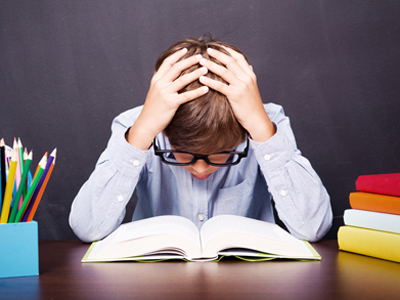What can I do if my Child is Struggling at School?
There may be times when children fall behind at school. To help them, find out why they are struggling. Communication is key. Then you can work with your child, and their teachers, to put things right
 Ensuring our children succeed in school is a shared goal, yet despite our efforts, they may occasionally lag behind. Identifying these setbacks early is crucial. This guide offers practical tips and advice to empower you in supporting your child.
Ensuring our children succeed in school is a shared goal, yet despite our efforts, they may occasionally lag behind. Identifying these setbacks early is crucial. This guide offers practical tips and advice to empower you in supporting your child.
Recognising Signs of Struggling
If your child faces challenges with schoolwork, they might feel ashamed or embarrassed, making it unlikely they'll share their difficulties. Identifying signs early is vital. Common indicators include:
- Excessive time spent on homework – If your child spends an unusually long time on assignments, there might be an issue.
- Reluctance to discuss school – Avoiding conversations about school may indicate underlying struggles.
- Negative changes in attitude – Behavioural shifts, such as increased aggression, could signal academic challenges.
- Diminished motivation – Phrases like 'School's boring' may reveal issues with the difficulty level of the work.
- Engaging in misbehaviour – Frustration might lead to misbehaviour as a way to seek attention.
- Signs of depression – Lethargy, loss of appetite, or sleep problems could indicate academic struggles.
- Concerns raised by the teacher – Teachers, being familiar with students' abilities, often notice academic setbacks early.
LEARN ABOUT THE BENEFITS OF LEARNING THROUGH QUIZZES
Common Reasons for Academic Struggles
Various factors can contribute to a child falling behind in school. Some prevalent reasons include:
- Stress – Events like divorce, bereavement, or bullying can adversely affect a student's performance.
- Social awkwardness – Lack of confidence, shyness, or social phobia may impede participation and grades.
- Learning pace – Children learn at different rates, and some may naturally progress more slowly than others.
- Special educational needs – Up to 20% of children may have various needs, from learning difficulties to ADHD or dyslexia.
Supporting Your Child's Academic Journey
Upon recognizing your child's academic challenges, take proactive steps to address the issue:
Talk to Your Child
Discover the root cause of the problem through open communication. Approach your child calmly and empathetically, creating an environment where they feel comfortable sharing.
Talk to the School
Initiate a conversation with your child's teachers promptly. Collaborate to find effective solutions, avoiding blame and understanding that teachers aim to support every student.
Homework Assistance
Establish an optimal home environment for studying. Allocate dedicated, distraction-free time for homework and engage with your child's assignments, offering help and correction when necessary.
FIND OUT WHY KIDS LOVE OUR WEBSITE
Implement Changes
Craft new rules collaboratively with your child instead of imposing stricter ones. Involving them in decision-making fosters motivation and a positive attitude toward education.
Stay Calm

If your child expresses frustration or anger, remain composed. Avoid engaging in conversations when emotions are high, allowing both parties to cool down before discussing the issue.
Be a Positive Parent
Avoid being perceived as an adversary. Work with your child instead of against them. Express love, praise effort, and create an atmosphere where they feel supported, regardless of grades.
Identifying Special Educational Needs
If you suspect your child may have special educational needs, consult with the school's Special Educational Needs Co-ordinator (SENCO) for guidance. If needed, seek advice from your GP.
Conclusion: Communication Is Key
So, what can you do if your child is falling behind at school? Quite a bit! Talk to them and their school to find the cause and a way to tackle the problem. With help and the right strategy, together you should be able to turn things around.
If you have any questions about parenting or education, then you may find the answer in our Knowledge Bank. It’s a collection of informative articles which aim to help parents through the challenges of school and child raising.



